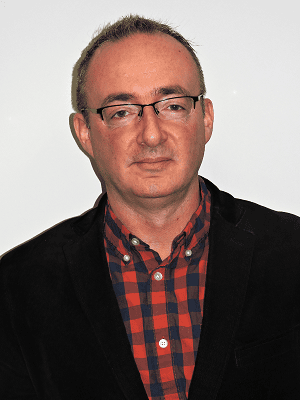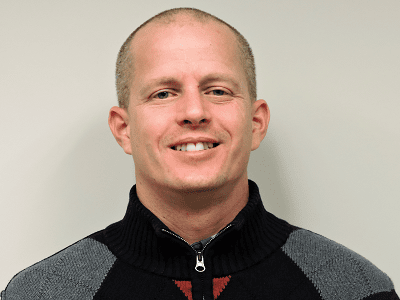 Jeremy Neill: My career path, like those of many PhDs who find themselves working outside of academia, took a number of surprising twists and turns that illustrate the challenges of the job market. I was rather fortunate in starting my career with a full-time teaching job. Menlo College, a small college in Silicon Valley with a focus on business, hired me as I was completing my PhD in world history at Northeastern University in 2004. The contract was for a 4-4 teaching load, with light expectations for scholarship and a heavy emphasis on teaching and service. Like other faculty at the college, I was hired on a contract system, rather than the tenure track.
Jeremy Neill: My career path, like those of many PhDs who find themselves working outside of academia, took a number of surprising twists and turns that illustrate the challenges of the job market. I was rather fortunate in starting my career with a full-time teaching job. Menlo College, a small college in Silicon Valley with a focus on business, hired me as I was completing my PhD in world history at Northeastern University in 2004. The contract was for a 4-4 teaching load, with light expectations for scholarship and a heavy emphasis on teaching and service. Like other faculty at the college, I was hired on a contract system, rather than the tenure track.
My eight years there were rather eventful— there was a constant undercurrent of concern over the financial health of the institution, and I saw three changes in administration. I published a few articles and gave regular conference papers, but my main focus was on becoming a better instructor. I also served on many committees, was faculty president for one year (which, as an assistant professor, is unusual to say the least), and did a great deal of work preparing for accreditation review.
On the third transition in administration, the college decided to drop the liberal arts major, and despite earlier reassurances that this would not jeopardize faculty jobs, I was one of many nonbusiness faculty informed that their contracts would not be renewed. So after eight years off the market, I found myself looking for a job in the aftermath of the economic crash and budget cuts across academia.
Frustrated with how the job search was going, I started looking for alternative careers outside academia while picking up some tutoring work. This search relied on more traditional job-search methods, including LinkedIn and state, local, and federal government job sites. In the fall of 2013, I interviewed for two very different positions that resulted in job offers. One was with the county records office of San Mateo, California, which sounded as though it might require a historian’s skills, but primarily involved property records. The other offer, which I accepted, was from the Educational Testing Service (ETS), where I interviewed for a position in the Assessment Division, primarily focusing on producing college placement exams for world and European history. Overall, the latter was a much better fit for my skills, and ETS was generous in moving me out to Princeton and in overall compensation.
 Michael Hill: I graduated with my PhD in medieval and global history from Rutgers University in spring 2014. Like many finishing graduate students, my final year consisted of completing my dissertation and applying for 50 to 60 higher-education faculty positions across the United States. Although I interviewed for both tenure-track and temporary teaching positions, I was unable to get a job and became increasingly frustrated with the academic job search, not to mention the prospect of potentially having to relocate to an undesirable destination. Luckily, the graduate vice chair of the Rutgers history department forwarded a job posting from ETS, which was seeking an intern to write test questions for college placement exams focusing on European and world history. I received the six-week internship and was later awarded a full-time position as a test developer.
Michael Hill: I graduated with my PhD in medieval and global history from Rutgers University in spring 2014. Like many finishing graduate students, my final year consisted of completing my dissertation and applying for 50 to 60 higher-education faculty positions across the United States. Although I interviewed for both tenure-track and temporary teaching positions, I was unable to get a job and became increasingly frustrated with the academic job search, not to mention the prospect of potentially having to relocate to an undesirable destination. Luckily, the graduate vice chair of the Rutgers history department forwarded a job posting from ETS, which was seeking an intern to write test questions for college placement exams focusing on European and world history. I received the six-week internship and was later awarded a full-time position as a test developer.
Our Jobs
MH: As test developers at ETS, Jeremy and I produce test forms for various college placement and licensure exams. Our training as historians and our experiences in the classroom provide essential skills that we use to conduct our daily tasks. Our training allows us to fulfill our professional and social mission—namely, to create historically accurate and pedagogically important test questions that generate valid and reliable educational assessments. Using our research and teaching experience, we evaluate and design test questions on topics that students will have commonly encountered; thoroughly research the historical accuracy of the questions and the textual or visual source materials upon which the questions might be based; review and edit the questions in dialogue with other historians, teachers, and clients; and assemble the finished questions into a comprehensive assessment that measures students’ historical knowledge as well as analytical and writing abilities.
JN: The research and teaching skills that we developed in graduate school and in the classroom are especially important when designing college placement assessments. For example, because those assessments are designed to approximate a freshman survey, my many years of teaching the world history survey to students of varying skill levels has proved very useful in thinking about what is appropriate in terms of assessing college candidates. The emphasis on engaging students with sources, primary and otherwise, means I still get to spend a lot of time working with historical texts and keeping up with the latest trends in scholarship, both in my research field and in historical pedagogy. The major challenge is in finding a balance between sources that engage true historical thinking skills and recognizing what high school students can manage under the pressure of time.
Our Transitions
JN: Transitioning from academia to a corporate environment was in many ways easier than I expected, as the academic world is increasingly influenced by management and business trends and practices. I found that working on accreditation and managing other bureaucratic tasks associated with shared governance at Menlo College was good preparation for the sort of work I do at ETS in the production of exams. It may not be where I pictured myself when I started the PhD, but it is certainly a fulfilling and challenging career.
MH: My transition from academia to the private sector has been personally and professionally rewarding. I have greater financial flexibility and more free time to spend with my family than I ever had as a graduate student or would have had as a tenure-track faculty member. While I was in graduate school, I spent the majority of my time focusing on one geographical region in one historical period. My position at ETS, however, has allowed me to revisit and explore many other historical interests. In addition, my work requires that I interact with many other sectors of ETS, which has allowed me to learn a great deal about other aspects of the business that I find highly interesting, such as publishing, marketing, operations, and client relations. Finally, I have still found it possible to continue to pursue teaching and research. For instance, last spring I had an opportunity to teach a course on the Crusades and the Islamic world at a local university. I have found the time to write and publish articles, and I plan to write a book proposal in the near future. Nevertheless, I can only teach one semester a year and have had to scale back significantly on what was once a much more ambitious publication agenda. Overall, however, my decision to enter the private sector is one that I do not regret.
are assessment specialists at Educational Testing Service. Any opinions expressed in this article are those of the authors and not necessarily of Educational Testing Service.

This work is licensed under a Creative Commons Attribution-NonCommercial-NoDerivatives 4.0 International License. Attribution must provide author name, article title, Perspectives on History, date of publication, and a link to this page. This license applies only to the article, not to text or images used here by permission.
The American Historical Association welcomes comments in the discussion area below, at AHA Communities, and in letters to the editor. Please read our commenting and letters policy before submitting.
This work is licensed under a Creative Commons Attribution-NonCommercial-NoDerivatives 4.0 International License. Attribution must provide author name, article title, Perspectives on History, date of publication, and a link to this page. This license applies only to the article, not to text or images used here by permission.